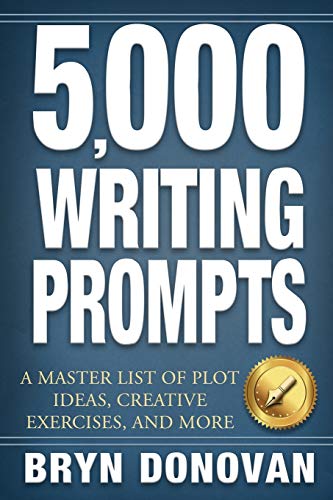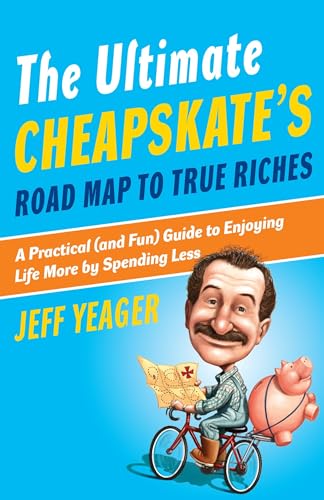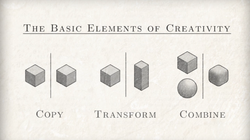As a writer or any kind of artist for that matter, we all have weaknesses. Working out and through those weaknesses can be made easier with just a little additional help. Finding ideas for stories and articles can be just one of many so I've put together a few suggestions as to how you can overcome this particular difficulty.

How to Find Ideas for Creative Writing
by tinacollins
Writing is half the battle; the other half is made up of coming up with an idea for your article/story. Here's a few tips on how you can do that!
Creative Writing
 |  |  |
| On Writing: A Memoir of the Craft (A ... Scribner | 5-Minute Daily Writing Prompts: 501 P... Callisto Only $8.49 | Creative Kindling: 52 Writing Exercis... Ideas Write Now LLC Only $27.99 |
 |  |  |
| The Making of a Story: A Norton Guide... W. W. Norton & Company | The Creative Writing Coursebook: 40 A... Macmillan UK | The Creative Act: A Way of Being Penguin Press Only $16.99 |
Why Can't I Come up with Ideas?
Reasons for a writer's block
My difficulty has always been the inability to come up with ideas which I feel confident enough to use in a story or a novel.
No matter how hard I try I am unable to formulate a plot or even a character.
Could this be the reason why I have written so few stories and no novels?
Ideas or storylines can be given to me, but I am unable to take the idea further in my head. I am not sure whether this is a lack of confidence or experience or because my train of thought appears to be different to others.
Creative Writing - Ideas...
...& Inspiration
Every Writer has a Weakness
Some find it difficult to write descriptions...
As a writer it is important to recognise your weakness. This could be PR, writing descriptions, plot ideas and so on.
In order to recognise these weaknesses, you must write as much as you can. Identifying those will help you become a better writer. For example, I have recognised a few weaknesses in myself. They are:
- Unable to come up with a story idea.
- Unable to write good or adequate descriptions.
- Unable to work with the use of constructive feedback by other writers.
There are very few writers who do not have a problem in some area in the craft of writing. Maybe they need to be extremely disciplined in the act of writing. Perhaps they require a rigid timetable to stick to in order to produce a body of work such as a story.
Others find writing good descriptions hard. This could be that they can see in their heads what they want to describe but are unable to or find it difficult to express what they see in words.
Writing Prompts
 |  |  |
| 5-Minute Daily Writing Prompts: 501 P... Callisto | The Well-Spoken Thesaurus: The Most P... Sourcebooks Only $7.99 | 5,000 WRITING PROMPTS: A Master List ... Munds Park Publishing |
 |  |  |
| Burn After Writing (Celestial) Tarcher | The Writer's Block: 786 Ideas to Jump... Running Press Adult | Rupi Kaur's Writing Prompts Relations... Andrews McMeel Publishing Only $9.28 |
Ideas for Novels
Where to find them
How to Combat your Weaknesses
Turn them into strengths
There are several things you can do to help turn your writing weaknesses into strengths. You can:
- Practice, practice, practice! Keep writing! Do not give up just because you find it hard or difficult. It may never be a true strength but it can and will improve in time.
- Recognise that you are human and that you have weaknesses. Try not to reflect too much on them; also focus on your strengths, too.
- Listen to feedback and constructive criticism.
- Learn more about your particular weakness. For example, if you find descriptions difficult, then learn more about how to write good descriptions.
Effective Ways To Brainstorm Story Ideas
1. Draw Inspiration from Your Surroundings:
- Observe the world around you: Pay attention to people, places, and events that spark your curiosity.
- Reflect on your own experiences: Use your memories, emotions, and challenges as the basis for your stories.
- Explore different cultures and historical periods: Researching unfamiliar settings can lead to unique and captivating stories.
2. Utilize Creative Writing Prompts:
- Find online resources: Websites and writing communities offer a wealth of prompts to jumpstart your imagination.
- Create your own prompts: Experiment with different genres, settings, and characters to generate fresh ideas.
- Use random word generators: Combine unrelated words to form unexpected and intriguing story concepts.
3. Experiment with Different Story Structures:
- Subvert traditional storytelling: Challenge conventions and explore unconventional narrative structures.
- Play with point of view: Consider telling your story from different perspectives to create unique insights.
- Blend genres: Combine elements from different genres to create hybrid stories that defy categorization.
4. Develop Compelling Characters:
- Give your characters depth and complexity: Explore their motivations, fears, and desires.
- Create flawed and relatable characters: Imperfect characters often resonate more with readers.
- Challenge your characters with obstacles: Conflict and adversity drive the narrative forward.
5. Build Intriguing Plots:
- Start with a strong hook: Grab the reader's attention from the beginning.
- Develop a clear conflict: A central conflict drives the story and keeps the reader engaged.
- Create a satisfying resolution: Tie up loose ends and provide a sense of closure.
Storytelling Games
 |  |  |
| How to Get Ideas | How to Write a Story, Grades 4-6+ | The $100 Startup: Reinvent the Way Yo... |
 |  |  |
| The Ultimate Cheapskate's Road Map to... | Story Engineering: Problem-Solving Sh... | PUSH: 30 Days to Turbocharged Habits,... |
Ideas for Short Stories
Where to find them
Writers.com has recently written any article on ways to come up with great story ideas:
You might also like
10 Ways to Keep Creative Writing Ideas FlowingTips and tricks to keep those creative juices flowing. If inspiration refuses...
How to Get People to Read the Next ChapterWhen the end of a chapter creates a natural break, how do you convince reader...



 Understanding Depressionon 12/05/2024
Understanding Depressionon 12/05/2024
 The Mystery Predators of Britainon 12/05/2024
The Mystery Predators of Britainon 12/05/2024
 Support Your Local Pet Rescue Charityon 12/05/2024
Support Your Local Pet Rescue Charityon 12/05/2024
 Could Equine Assisted Therapy Benefit Those With Personality Disorderson 12/05/2024
Could Equine Assisted Therapy Benefit Those With Personality Disorderson 12/05/2024



Comments
This wizzley is such a helpful resource.
The first through the third sentences to the first subheading, Why can't I come up with ideas?, considers that "My difficulty has always been the inability to come up with ideas which I feel confident enough to use in a story or a novel. No matter how hard I try I am unable to formulate a plot or even a character. Could this be the reason why I have written so few stories and no novels?"
Might it be possible for you to write some stories that then can be united into a novel?
In a way, the aforementioned technique would describe something like One thousand and one nights, wouldn't you think?
The first sentence in your introduction defers to writer weaknesses.
Does it perhaps not seem more optimistic, more realistic, more upbeat to first identify known strengths?
Thanks, I hope it helps you; will be updating it soon!
Nice ideas, I will be back to review this and put it into practice.
I usually have ideas, but I lack time. i also often have the bad idea to write about stuff that don't do well (but I loke the topic). I need, as AJ, to try and do more writing with income in mind.
I need to come back and study this page very hard. One of the things I want to do in 2012 is find a balance between writing for the love of writing and writing for income. I would rather do the former, but life dictates that the latter has to take priority :(
This is a really usefyul resource for anyone looking for inspiration